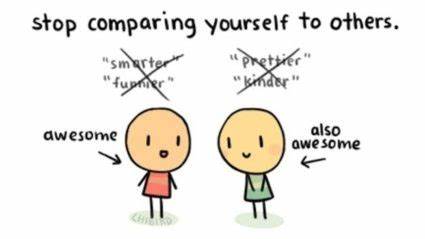Blog 6: Winding down
Someone recently asked me on Twitter about how I cope with the sad side of working in palliative care. I have also noticed an increasing amount of young doctor's on social media talking about their personal reactions to stressful work situations and patients deaths. Many of these ended with the question "How do people turn off when they get home?"; some were more reflective asking "how do people cope with this all the time?"
There were some suggestions offered by other Tweeters, many of these were excellent and made a lot of sense. It made me reflect on how I have dealt with difficult times related to work over the years and I will try to put some of that into words for you.
Shall we start with the term "Resilience"? Yes why not. After all it has been the buzz word in the past few years for survival in health care. Resilience is the ability to recover when something bad happens. Not just to recover to a point of basic functioning, but to bounce back into a successful and productive state. I have come to realise that resilience is different from coping. I picture resilience as a finite internal fuel that can be injected to power through difficult times. It can help drive us through challenging times but is not a long term solution. If the root cause of the stress persists then we end up literally "running on fumes of resilience"
I remember being offered resilience training along with several medical colleagues in a previous role. I refused. Not because I thought I would tough it out on my own. No, I refused because I recognised that it would ultimately be a futile practice. The issue was the work environment, demands and management style. Those who attended described roleplaying scenarios around staff tensions and dealing with anger from relatives. There was a hand out with tips on how to relax when not at work. All reasonable approaches but it failed to deal with the issues actually occurring day to day. Most resilience workshops occur off-site, combine specialties and fail to recognise that the challenges that really hit us hardest occur in real time. Each individual will react differently depending on their interpretation of the situation, background experience, medical specialty, current personal circumstances and perceived organisational support. Trying to top up resilience of individuals appears very complex to me. Trying to top up resilience to combat rising work place demands, emotional distress or falling standards of patient care seems like an afterthought: Resilience treatment versus Resilience prevention. Something is wrong when we have call on our resilience.

Forced to continually tap into our resources of resilience can lead to burnout. I had a think about what that might look like and what kind of thinking could lead to this.
1) Feeling overwhelmed or emotionally detached:
I have felt this mainly when I go into auto-pilot. I may be very effective for a while, thriving on the buzz of productivity. Trying to power on through the work, skipping breaks or forgetting to share the tasks with colleagues. It can also occur when I set myself expectations that are unrealistic or judge myself on the standards of others. I'm sure these traits are common in many health care professionals, especially doctors. Medical school is competitive right from the word go: top grades, head boy/girl, what are your previous achievements and so on. There remains a competitiveness and edge throughout the profession, it can drive progress and high standards of care. It may also be very draining for those aiming for those high standards or those on the sharp end of other's determination to succeed. Rivalries remain between specialties and within them. Hierarchies persist and can result in some challenging interactions. I've heard it said that high work loads and dressings down are part of the learning process, almost joked about. The caring profession has been taking a look at itself over the past few years and hopefully these issues will reduce in time.
Possible approaches to this:
Take breaks- throughout the day and make sure you take your annual leave.
Call out workplace practice that only promotes individual effort- there are some aspects of my job that I am responsible for but the vast majority is shared care: remember that when you are off, the system still functions.
Be mindful of the fact that the more effective and efficient you are, the more work you may be offered or expected to do in future. It's ok to say no- something I have been terrible at in the past. Over stretching yourself can lead to the need to call on your resilience to cope with even every day work.
Avoid confrontation over the phone if possible. It is one of the biggest offenders for causing distress. It is impersonal and too easy for people to say things they wouldn't face-to-face.
Call out workplace practices that deny the opportunity to resolve conflicts transparently.
Set yourself realistic expectations, avoid comparisons with others- we all bring something individual.

2) My work doesn't have any meaning:
The mistake I've made here is to assume that there is only meaning in the most extreme examples of practice. When a patient or relative personally thanks you, when you make a difficult diagnosis, when you attend a cardiac arrest or help reunite an estranged family in the last weeks of life.
It is in fact the "every day" interactions and tasks that can make all the difference. I've always been amazed at the gratitude offered by patients and relatives when I am least expecting it. The patients who we think we have the least impact on often turn out to be the most grateful- why does that happen and what should we take from that?
For me it comes down to the fundamentals of good care. Talking with people, spending time with them, being honest, advocating for them, involving people in their own care decisions and providing a safe environment. Sometimes it is the medical intervention that leaves an impact. This isn't always the treatments we expect though. It can be treating oral candida (thrush) which then lets the person enjoy their food and drink without pain or funny tastes. It can be reducing the amount of pills that need to be taken. A change in footwear to reduce falls or a new bed cover that reduces pain from pressure on the skin. Sometimes it is the efforts made to try and help that are remembered- even when the outcome isn't what we had hoped for.
Even more simple is the act of being there. The old cliché of the palliative care clinician holding someone's hand hasn't arisen by accident. I think what the picture really symbolises is being present at that moment. Touch isn't needed to be present in the moment with someone, although I do think it is a powerful instrument when used appropriately. It is not possible to be 100% all the time with every person we meet, that would be exhausting and unnecessary. It can be possible to at least avoid the opposite of such presence by adopting a bed side manner that shows respect and dignity even when we are tired or under time constraints.
3) I don't know how to deal with a patient's death
There's a funny thing that happens when I speak to colleagues and friends. When they ask what I do they often react with the same response " Oh that must be really sad, I don't know how you do it, I couldn't do that."
I say the same to my colleagues who are paediatricians as I don't think I could work with children who are unwell and so fragile.
This made me think of why people react that way. I concluded it is primarily because people die and how that is viewed in society. Another aspect may be the fact that I am highly unlikely to cure or save anyone's life once I cross into specialising in palliative care. Dying is not unique to palliative care although it is true that we will look after more patients who die than many other teams. Is there anything special we do to cope with this that might help others who are finding the death of patients particularly distressing?
I can only give my viewpoint here but there are a few things I have found helpful.
1) It is ok to get upset
Of course it is upsetting when someone dies. To expect clinicians to be able to distance themselves every time is nonsense and if I found myself unmoved to some degree by the death of anyone I'd take that as a warning sign I'm burning out. On the other hand it would be unbearable to take on the collective grief of all the patients we care for who die. So there needs to be a balance.
In my earlier blogs I covered two areas that come into play here. The first is to put the realities and limitations of medicine into true perspective. We cannot save everyone. Recognising this is vital as I found as a junior doctor. That realisation that medicine extends beyond cure and that we can have huge impacts through palliative measures may give a new insight into all our potentials to help patients. When I accept that there is no fix, no cure for some people I no longer see sadness. I now see an opportunity.
The last chapter of a person's life should be given as much respect as any other time of their life- in many ways it is more important. As clinicians and more importantly as human beings we have the desire to be useful, to help and heal. By providing as much support as possible for someone approaching the end of their life I have found it can ease the sadness experienced when they die. This includes the sadness for the patient themselves, their families and subsequently ourselves. If we shy away from those who are dying rather than engaging directly then we are unlikely to gain any professional satisfaction or solace when they die.
If you find you are getting upset repeatedly by patient's dying then it is vital you speak to a colleague. Don't hide it please. If you have questions about what happened or doubts about something you did then please discuss it with someone. It is pivotal that you acknowledge the death with someone you trust. The nature of medicine is that new patients arrive and the clinicians grief has a small window of opportunity to be explored. By having such open conversations I believe that we can become better carers in future as we develop more recognition of the needs of our patients and ourselves.
2) Be mindful of who you are looking after
Some patients will affect us more when they die. I am mindful of patients who remind me of family members who have died- it can happen out of the blue. Patients who are a similar age to me can also have a profound effect. Talking about the same music, same childhood experiences and even writing their date of birth. Prolonged or repeated input with patients and their families also can provoke deeper reactions.
If I pick up on any of these then I speak to my colleagues. One of the simplest ways to help with this is to rotate who is caring for the patient. I've seen this done so well in the hospice setting. Having the same staff working closely with a person for hours every day without breaks can have negative effects. The patient may feel safer with familiar faces and forms close bonds with staff, there needs to be a balance though. If I find myself closely involved now I try to take a step back. This is for myself yes, but also for the patient. Becoming too close can affect a clinician's judgement. I've had instances where I have asked a senior colleague's advice about a patient I have been closely involved with, the advice I get is not what I had been thinking. Most of the time the neutral advice has been the correct course of action. My approach now is to advocate for patient's views but I am completely open to other people's views now I have realised this potential flaw in clinician practice.
3) I can't stop thinking about a patient that died
This is a difficult one. Everyone at some point will take their work home with them. If like me you have woken up in the middle of the night playing a scenario over in your mind then you are not alone.
The sense of responsibility evoked by working as a health care professional can have positive effects. When we perceive that we have let someone down or that they have had a particularly sad end to their lives it can leave a lasting impression.
I have only found one way to deal with this. Carry out a formal reflection on what happened with my supervisor. By formalising my thoughts I find it helps remind me of the divide between work and personal life. Discussing situations with my consultant colleagues is both therapeutic and educational. If something has left an impression that strongly on me then I believe there is something to be learned. Often what I learn is positive and hopefully will improve my practice. I can be my own harshest critic, not good in this type of situation. I have yet to receive anything close to negative criticism from any of my personal reflections, I'm sure you would find the same if you give it a go.

Finally, the obvious. Try to relax outside of work. I feel I have a cheek saying that given the events of the last year with COVID-19. It is so true though. I'm not going to patronise you by telling you how to relax, there are endless resources on this online. As you know I like to paint, break cars and read. I also run...a lot. The only thing I have found that always works is exercise. If I can get a few runs in then I am 100% better at dealing with whatever comes my way. Some of my friends go to concerts, some bake and some climb mountains- there is usually one thing in particular that shines through.

I hope there is something here that might help anyone who is finding things tough. You may ask "does it get easier with time". Yes, it probably does. There is a phenomenon known as "compartmentalisation" where clinicians learn to separate patient loss from other aspects of their live. It is a form of dissociation and can be protective, allowing continued professionalism. It is vital however that we all continue to look out for the signs of this breaking down or even turning to indifference. Find people you can talk to, you will then find you are able to support your colleagues when they face similar challenges.